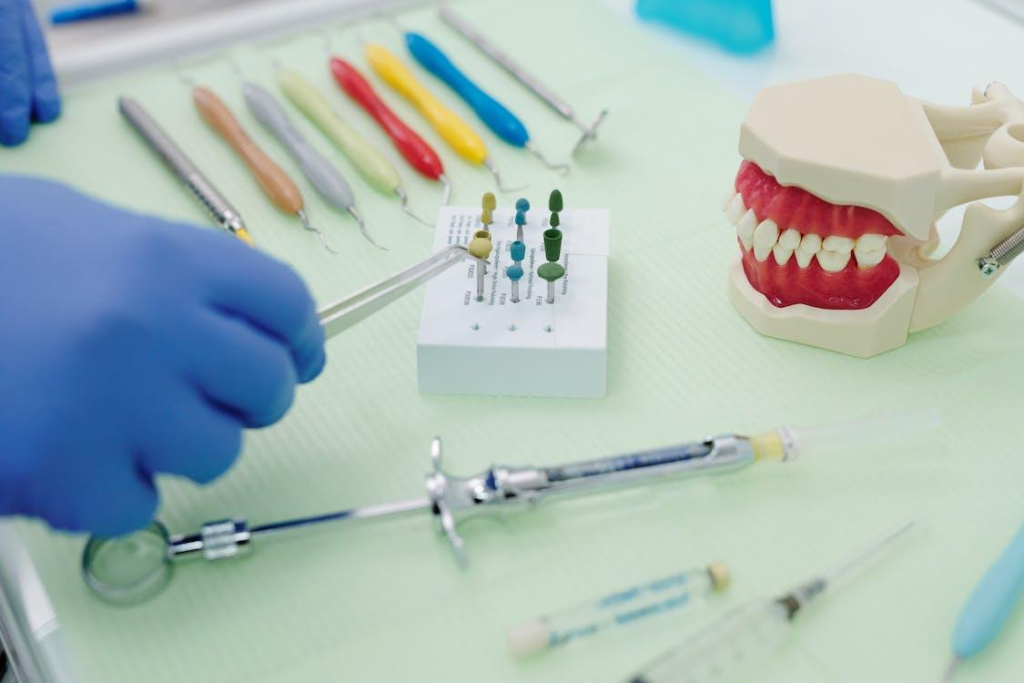Bruxism, commonly known as teeth grinding, is a condition that might not be widely discussed but affects many individuals. It’s a habit that can lead to dental health issues if not addressed promptly.
This blog aims to shed light on bruxism, including its causes, symptoms, and impact on oral health. We will also provide practical tips and solutions for managing this condition and alleviating its associated symptoms.
What Is Bruxism?
Bruxism is the involuntary action of grinding one’s teeth or clenching the jaw. This often occurs during sleep, referred to as nocturnal bruxism, although it can also happen during the day, typically in stress response. People of all ages can experience this condition.
Causes of Bruxism
The exact cause of bruxism is not known, but several factors are thought to contribute to the condition:
- Stress and Anxiety: High levels of stress or anxiety can lead to teeth grinding, as individuals may unknowingly clench their jaw or grind their teeth in response to stress.
- Sleep Disorders: Those with certain sleep disorders, such as sleep apnea, are more likely to experience bruxism.
- Lifestyle Factors: Excessive consumption of caffeine or alcohol, smoking, and certain medications can increase the risk of bruxism.
Recognizing the Symptoms
Identifying bruxism can be tricky, mainly if it occurs during sleep. However, there are several symptoms to look out for:
- Tooth Sensitivity or Pain: Frequent grinding of teeth can lead to tooth sensitivity or pain.
- Jaw Soreness or Pain: The constant clenching can strain the jaw muscles, leading to discomfort.
- Damage to Teeth: Grinding can wear down the enamel over time, leading to chipped or flat teeth.
The Impact on Oral Health
If left untreated, bruxism can have serious consequences for oral health, including:
- Tooth Damage: Continuous grinding can lead to the wearing down of the tooth’s surface, fractures, and even tooth loss.
- Jaw Disorderscan contribute to temporomandibular joint (TMJ) disorders, causing pain and dysfunction in the jaw joint and muscles.
- Gum Recession: Excessive force may cause gums to recede, exposing the roots of the teeth and leading to sensitivity.

Managing Bruxism
Fortunately, there are ways to manage bruxism and mitigate its effects on oral health:
- Stress Reduction: Since stress is a significant contributor, finding ways to relax and reduce stress can help. Consider meditation, yoga, or other relaxation techniques.
- Mouthguards: A dentist can provide a custom-fitted mouthguard to wear at night, protecting the teeth from grinding.
- Avoid Stimulants: Reducing the intake of caffeine and alcohol, especially before bedtime, can help lessen bruxism.
Seeking Professional Help
If you suspect you or a loved one is suffering from bruxism, it’s essential to consult with a dental professional.
They can offer a diagnosis and recommend the best treatment plan tailored to your needs. Early intervention can prevent further dental damage and alleviate discomfort.
Protecting Your Smile
Understanding bruxism and its potential impact on oral health is the first step toward protecting your teeth and ensuring a healthy smile.
By recognizing the signs and seeking appropriate treatment, individuals can effectively manage bruxism and avoid its more severe consequences. Remember, your oral health is essential to your overall well-being.


